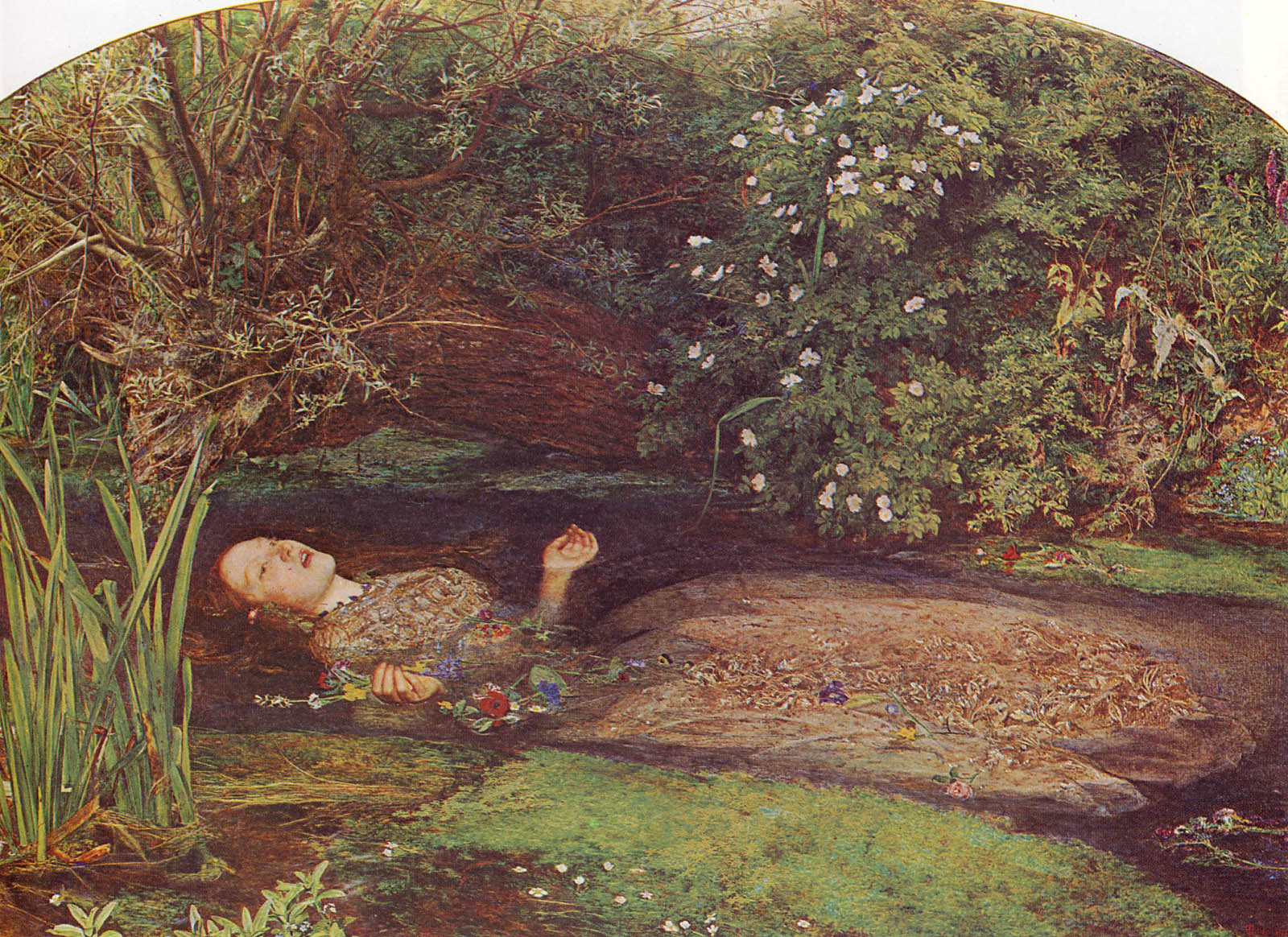I love trimming rose plants, the big ones in a friend's garden, the miniature ones on a friend's balcony. Rose plants love to be pruned, they grow back bigger and better, they make more flowers in the secret clefts of their stems and leaves.
So the day plants produced flowers... I've been wondering what the first flower looked like. Apparently the first flowers may have been magnolias, which is a wonderful discovery. They also greeted me consistently this summer, with their big luscious petals and their almost unbearably sweet smell, at night, in parks. In a primitive forest with primitive leaves I would have loved to have lain under a magnolia tree. Also, magnolias have lovely, plush fruits, sweet to touch too, though hard, with bright red seeds, waiting, inside.
Ophelia
Why, Ophelia, did you die?
Your cracked mind,
and all the different uses for flowers.
Your hair hanging on the wall
for a man who called you whore
and a father, innocent in liking.
Did you not study enough?
 Did language escape you?
Did language escape you?The language of flowers,
so much simpler before,
for you and yours, gentle souls,
for love professed by the body,
that floated by the shore
and crimson somehow, violet,
nosegay, forget-me-not and scarlet
roses tell the sorry tale.
Why, Ophelia did you die?
For loss, for keeping?
Keep coming, Ophelia,
through the cold water,
twisted with leaves and grass
not flowers. Tell your tale,
speak it now, to haunt the man
who in his lies and weakness
made you piecemeal and sore.
He tore a whisp of some sweet fragrance
from your chest and wrestled,
wrestled with another language, not yours.
I'm not sure what Ophelia is doing here, drowned among her flowers. I'm sure she loved to trim them too. A man I knew once likened me to her and this poem came out, a tribute to her, and also to my melancholy, since the man had gone.
Maybe it is the end of summer which makes me think of the darkness to come, the end of naivity, the passing of girlhood, the marrow of mature life, harvesting the red fruit, or picking up the fruit that has fallen, no longer a flower.
Ophelia got off the train, poor thing. She gave her flowers. I just learned that daisies mean forsaken love, unhappy love, so it is just as well mine are no longer blooming, though I thought I read they meant innocence. Maybe it is the same thing, or that one, necessarily, leads to the end of the other.
There's rosemary, that's for remembrance. Pray you,
love, remember. And there is pansies, that's for thoughts...
There's fennel for you, and columbines. There's rue for
you, and here's some for me. We may call it herb of grace o'
Sundays. O, you must wear your rue with a difference!
There's a daisy. I would give you some violets, but they wither'd
all when my father died....
(Shakespeare, Hamlet, Ophelia speaking in Act IV, scene V)
What I love about this scene is Ophelia's bawdy language. Oh, she has lost it, she sees the truth, and learns, too late, that she shouldn't have let him steal her thyme.
Tomorrow is Saint Valentine's day,
All in the morning betime,(55)
And I a maid at your window,
To be your Valentine.
Then up he rose and donn'd his clo'es
And dupp'd the chamber door,
Let in the maid, that out a maid(60)
Never departed more.
I think I'm still getting over the loss of mine.
By Gis and by Saint Charity,
Alack, and fie for shame!(65)
Young men will do't if they come to't
By Cock, they are to blame.
Quoth she, 'Before you tumbled me,
You promis'd me to wed.'
(He answers:)
'So would I 'a' done, by yonder sun,(70)
An thou hadst not come to my bed.'
But I'm not about to die over it.


No comments:
Post a Comment